It may come as no surprise to learn that in recent years, Spain has become a much sought-after destination for individuals seeking treatment for mental health issues like addiction.
Many are turning to private rehabilitation centres in Spain, not only to get help and support for a substance addiction, but as a way to recharge and remove themselves from everyday distractions and triggers.
Spain is rapidly emerging as one of Europe’s most popular destinations for trauma-informed addiction recovery, drawing individuals from all corners of the globe who seek effective, compassionate, and holistic care.
Again, all this is not surprising, given its unique blend of warm climates, fresh sea air, and integrative treatment models that go beyond traditional rehab approaches, Spain provides the perfect foundation for individuals not only to recover but also to thrive.
Here, we will explore what makes Spain the perfect location for trauma-informed addiction recovery.
This approach not only addresses the individual’s addiction but also takes into account the ‘whole’ person, including their trauma history and lived experience, providing a well-rounded treatment that is both effective and long-lasting.
Holistic addiction treatment in Spain




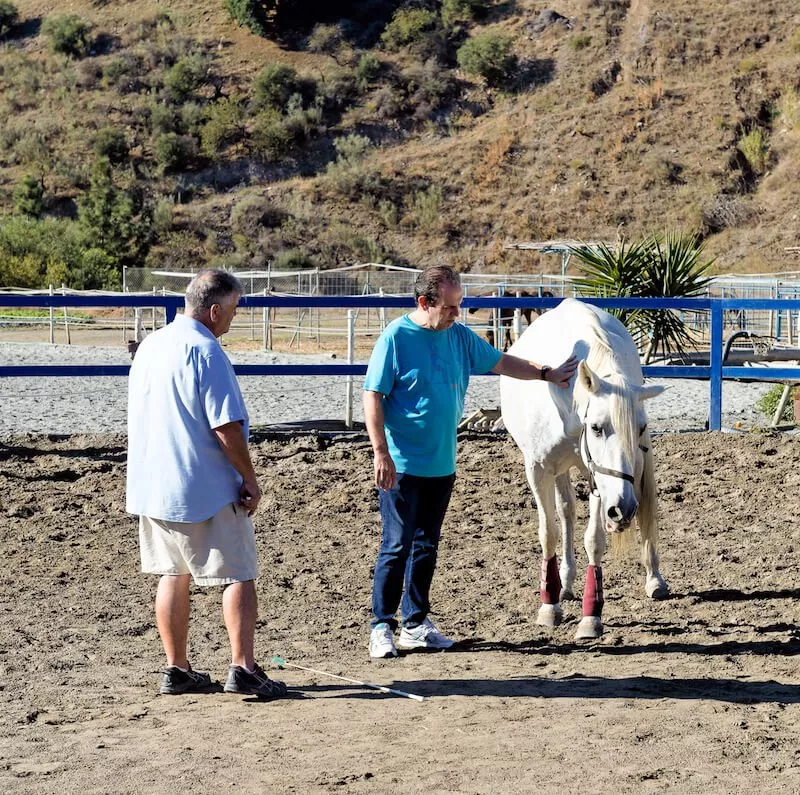
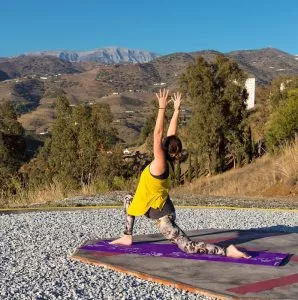

If you (or a loved one) would like help and support for an addiction or you’d like to learn more about our trauma-informed addiction programmes, contact the Camino Recovery team today, who will gladly help.
Our luxury rehab facility is situated just thirty minutes east of Málaga, providing clients with a high level of privacy, exclusivity, and a peaceful environment in which to relax and recover.
Empathy and compassion are at the heart of everything we do for our clients. We offer a deep level of understanding, curiosity, and a safe, calming environment, ensuring you feel understood and supported throughout your journey.
You are not alone. Help and support are only a phone call away.
So, why is Spain emerging as a destination for trauma-informed addiction recovery?
There are various reasons why Spain has become the ‘go-to’ destination for addiction recovery, too many to list in one article!
Several of which are listed below.
1. World-class trauma-informed rehab centres
Spain is becoming a global hub for luxury rehab centres that specialise in trauma-informed care.
These facilities offer effective, evidence-based treatments, such as behavioural therapy, trauma-focused care, and experiential approaches like yoga and breathwork, as part of an integrated treatment plan, all in a peaceful and tranquil setting.
From Andalusia to the Costa-Del-Sol, most rehab facilities in Spain are equipped with expert-led teams who understand the profound connection between unresolved trauma and substance use disorders.
These rehab centres typically offer the following as part of an integrated treatment plan:
Medical detox programmes
Most rehab centres in Spain offer drug and alcohol detox as part of a broader treatment plan.
For many individuals beginning their recovery journey, a medically supported detox is a crucial first step.
At Camino Recovery, every detox process is carefully overseen by medical professionals and tailored to meet your specific needs.
Before starting, a qualified doctor conducts a thorough assessment that considers your medical history, mental health, the substance or behaviour involved, and the duration and severity of your addiction.
This personalised approach ensures your detox is safe, comfortable, and tailored to support your long-term recovery.
Trauma-informed treatment
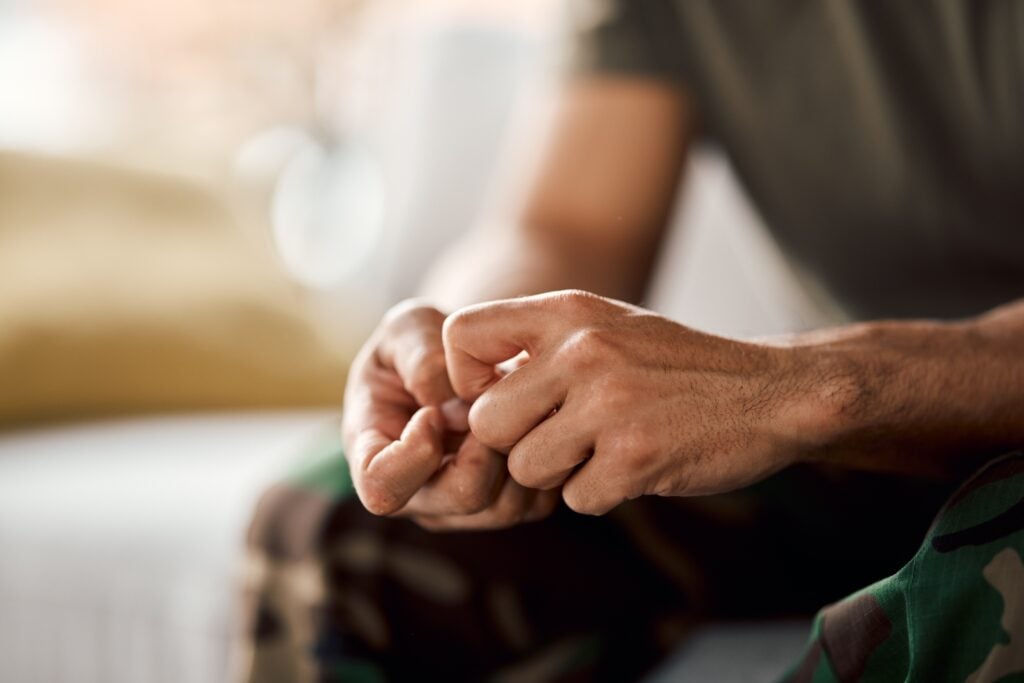
Many treatment facilities in Spain are equipped with trauma specialists who are trained in approaches like EMDR (eye movement desensitisation reprocessing).
This pioneering trauma treatment helps individuals safely reprocess past traumatic experiences using techniques such as bilateral stimulation, tapping, and other rhythmic movements.
Our specialists are skilled at utilising these techniques to help our clients heal from past traumas and develop healthier coping mechanisms.
The origins of EMDR
EMDR is a pioneering trauma treatment developed by Dr Francine Shapiro in the 1980s to help individuals safely reprocess past traumatic experiences using the above techniques.
Over time, the techniques used in EMDR therapy help release any stored trauma or negative energy from the body, helping to reduce distress and painful memories associated with these experiences.
Behavioural therapy
Another integral approach often included in trauma-informed addiction treatment programmes in Spain is behavioural therapy.
These treatments mainly include cognitive behavioural therapy (CBT) and dialectical behaviour therapy (DBT), both of which explore and change any maladaptive thoughts and behaviours that may cause or worsen substance use.
The origins of CBT
CBT was first developed in the 1960s by medical professionals seeking to better understand the connection between human thoughts, emotions, and behaviours.
They identified that people often experience automatic thoughts, which are immediate and involuntary responses shaped by past experiences.
Many of these thoughts were found to carry a negative bias, particularly when individuals viewed themselves, the world around them, or their future.
This pattern of distorted thinking was shown to play a significant role in the development and maintenance of conditions such as depression, anxiety, and addiction.
CBT was created as a practical, structured approach to help individuals recognise and reframe unhelpful thought patterns, supporting emotional well-being and behavioural change.
Additional approaches also used as part of trauma-informed addiction treatment in Spain may include:
- 12-step support
- Art therapy
- Family and group therapy
- Aftercare and support
2. A calm and restorative environment
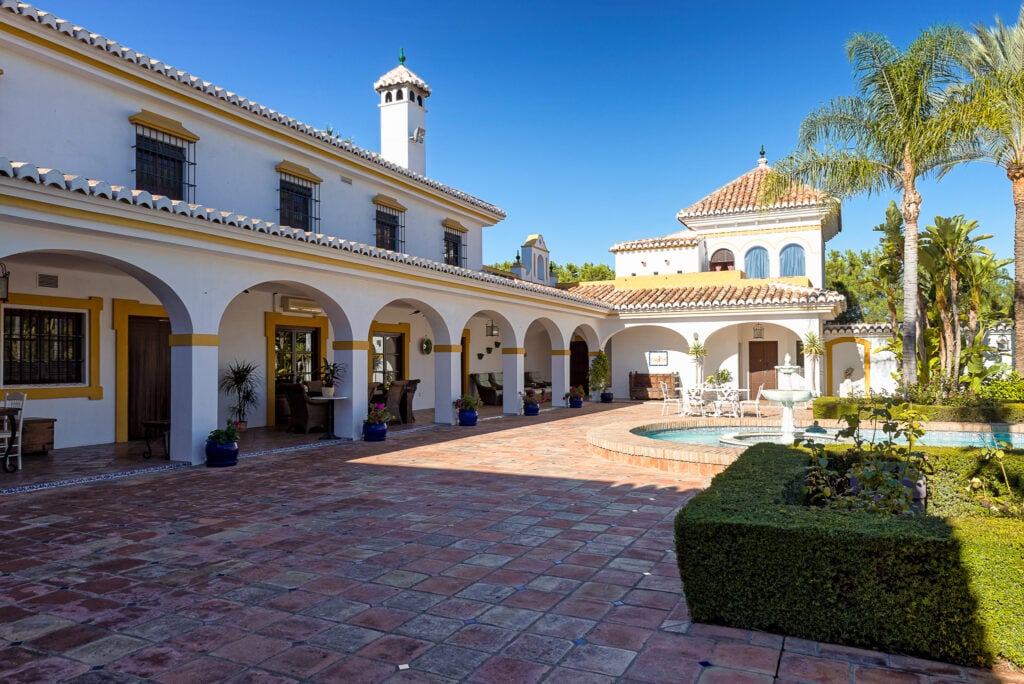
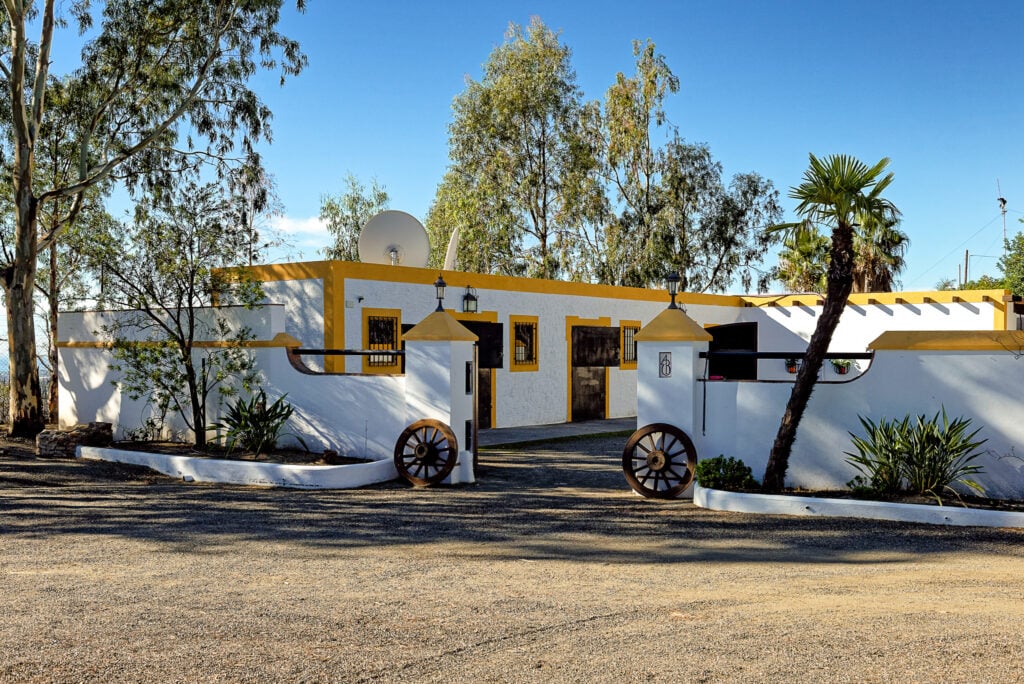


Among many advantages, Spain offers a much slower pace of life for those in recovery.
Some research suggests that exposure to warmth, nature, and the outdoors contributes to improved emotional regulation and stress relief, making Spain an inherently therapeutic environment for recovery.
If you are considering coming to Spain for treatment, you won’t be disappointed.
With its gentle sunshine, fresh sea air, and comprehensive, person-centred approach to recovery, you can be sure you will be well taken care of.
3. Privacy and discretion for international clients
Spain attracts a wealth of diverse, multinational clients from the UK, Northern Europe, the Middle East, and beyond who seek the comfort and discretion of receiving care abroad.
As part of trauma-informed addiction treatment, many luxury rehabs in Spain offer secluded, private settings with individualised treatment plans based on each person’s unique needs and preferences.
Privacy and confidentiality are key factors for many seeking treatment, and can be what draws some people to engage in inpatient therapy in the first place.
4. An emphasis on holistic and integrative care
As briefly mentioned, trauma-informed addiction treatment in Spain typically includes a range of evidence-based and holistic therapies to help individuals recover and sustain sobriety.
Some of these therapies have already been mentioned above, but other approaches are widely used too, including:
- Mindfulness
- Meditation
- Relapse prevention
- Holistic and wellness programmes
- Nutritional support
These therapies enable individuals to not only understand their addiction triggers better but to manage other aspects of their lives, including taking better care of their bodies through exercise, breathwork, and nutritional wellness.
Most Spanish rehab centres offer holistic and integrative care as part of a broader trauma-informed addiction programme.
5. A supportive lifestyle for long-term recovery

Most rehab facilities in Spain offer supportive lifestyle options to individuals post-treatment to help them navigate life after recovery.
There are various terms for these programmes, with some of the more popular ones being:
- Sober living and peer support
- Sober companion services
- Aftercare and support
- Continuing care
These services are an essential part of any trauma-informed addiction treatment programme, offering a strong foundation for individuals to manage life and sustain sobriety once they return home.
Continuing care at Camino Recovery involves various support services, but typically includes attending fellowship meetings, finding a sponsor, regular meetings with new or referring clinicians, and support from our professional staff.
Various studies show that individuals who engage in aftercare programmes have a greater chance of sustaining long-term recovery and preventing relapse.
Aftercare plays a crucial role as a transitional step between structured treatment and everyday life, offering continued support during the critical early stages of recovery when the risk of relapse is highest.
Spanish treatment clinics offer these programmes to clients to ensure they have the support and care they need once they return home.
Inherently, the level of care and support you receive in Spain doesn’t end just because your treatment programme does.
Final thoughts
As more and more people begin to see the importance of trauma-informed addiction treatment, Spain is way ahead of the curve.
With a combination of holistic treatments, clinical excellence, and natural beauty, Spain is rapidly emerging as the ideal location for sustainable wellness and recovery.
Whether you are seeking treatment for yourself or a loved one, Spain’s reputation for providing world-class trauma-informed addiction treatment is worth considering when making this all-important decision.
And our team in Spain is here to support you every step of the way.
Contact us today for further support and information, and begin your journey to lasting recovery and well-being.
Don specialised in addiction studies, earning an MDiv and a master's in Management, Administration, and Counseling. As a priest, he supported Step 5s in local treatment centers for nearly 40 years, excelling in "family systems work" in the addiction field.
Additionally, Don pioneered equine-assisted psychotherapy (EAP) in the US and UK during the 1990s. He authored "Equine Utilized Psychotherapy: Dance with those that run with laughter" and gained media recognition, including appearances on 'the Trisha Show' and features in The Daily Telegraph.
In the early 2000s, Don and his wife, Meena, founded Camino Recovery in Spain, providing tailored addiction treatment programs aimed at fostering happier lives.



